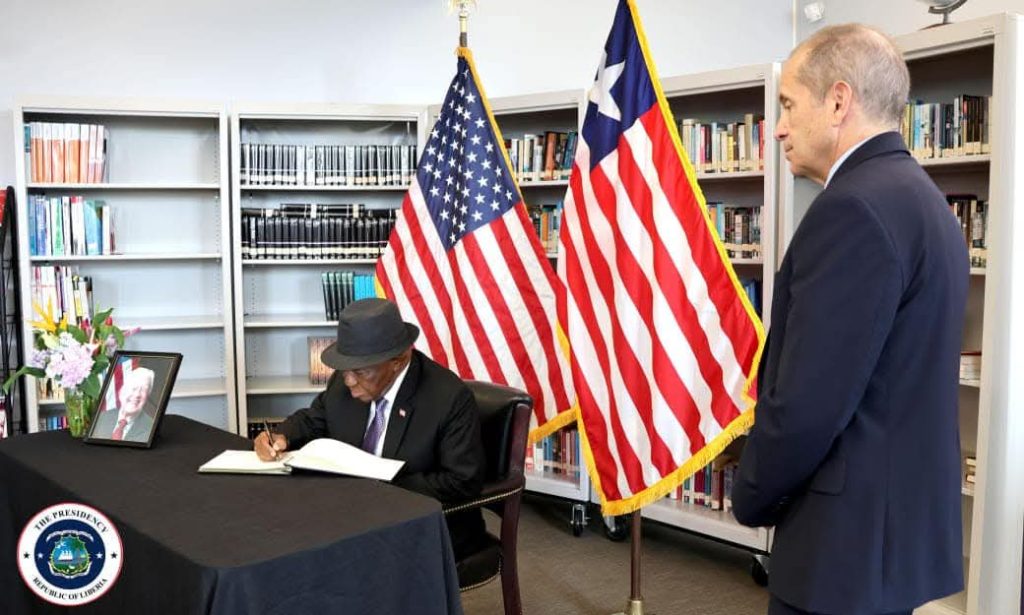Jimmy Carter, the 39th President of the United States, left an enduring legacy marked by his unwavering commitment to peace, human rights, and global health initiatives. His post-presidency humanitarian work, particularly through the Carter Center, solidified his reputation as a champion for the vulnerable and a beacon of hope for a better world. His recent passing prompted an outpouring of grief and tributes from around the globe, reflecting the profound impact he had on countless lives. In Liberia, a nation deeply connected to the United States through historical ties and mutual respect, President George Weah, represented by Joseph Boakai, paid a touching tribute to the fallen statesman, highlighting Carter’s significant contributions to both global affairs and Liberia’s development.
At the United States Embassy near Monrovia, Boakai, speaking on behalf of the Liberian people, extolled Carter’s tireless efforts in advancing democracy, promoting human rights, and fostering equality. He underscored the Carter Center’s crucial role in combating diseases, resolving conflicts, and promoting free and fair elections worldwide. Boakai emphasized the profound impact of the Carter Center’s work in Liberia, particularly during challenging periods, noting its indelible mark on humanity and its significant contribution to the nation’s development. He lauded Carter as not merely a national leader but a global champion for justice and human dignity.
The opening of a Book of Condolence at the U.S. Embassy provided a platform for dignitaries, government officials, and members of the public to express their sympathies and honor Carter’s memory. President Boakai’s presence at the signing ceremony symbolized the strong bond between Liberia and the United States, a relationship built on shared values and mutual respect. Following Boakai, Sylvester Grisby, Minister of State for Presidential Affairs, and Sara Beysolow Nyanti, Minister of Foreign Affairs, also signed the Book of Condolence, further demonstrating the Liberian government’s deep appreciation for Carter’s contributions to their nation and the world.
Carter’s presidency, though spanning only a single term from 1977 to 1981, was characterized by his humility, empathy, and dedication to humanitarian causes. His post-presidency work, however, cemented his place as a global icon. The Carter Center, established in 1982, became a powerful force for good, tackling critical issues such as disease eradication, conflict resolution, and election monitoring. His relentless pursuit of peace and justice earned him the Nobel Peace Prize in 2002, a testament to his unwavering commitment to building a more equitable and peaceful world.
Carter’s work in Africa resonated deeply with many, particularly his efforts to eradicate diseases like Guinea worm. His focus on uplifting the most vulnerable communities and promoting global health initiatives earned him the respect and admiration of people across the continent. His legacy in Africa serves as a reminder of his deep commitment to improving the lives of those most in need.
Jimmy Carter’s life was a testament to the power of service and the enduring impact of a life dedicated to others. His humility, empathy, and unwavering commitment to peace and justice will continue to inspire generations to come. His legacy serves as a powerful reminder that true leadership lies not just in holding positions of power but in using that power to uplift humanity and create a more just and compassionate world. From his time in the Oval Office to his decades of humanitarian work, Carter exemplified the values of service, compassion, and a deep commitment to making a positive difference in the world. His passing marks the end of an era, but his legacy will continue to inspire and guide future generations towards a brighter future.














